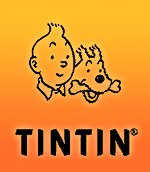I grew up reading comics in the golden era of the early eighties, when Wolfman and Perez were on The New Teen Titans, Levitz and Giffen were on Legion of Superheroes, Moore, Bissette and Totleben were on Swamp Thing, and Barr and Aparo were on Batman and the Outsiders. Back then, these were the books that did everything right: sharply defined characters, character-driven stories, tight plotting, real surprises, and gorgeous art. Each of these books had a far-reaching creative vision--something that was only possible because each had a writer-artist team that was in it for the long haul, had an extraordinary synergy, and clearly had a genuine love for the medium. These were the comics that made me a "collector," and I've no doubt measured every comic I've read since against these ones. Not against their quality exclusively, but against a certain, somewhat indefinable feeling they gave me: of being involved in a fully realized, aesthetically precise, and absolutely adult fantastic world. This was adulthood as a ten year old boy might imagine it, to be sure. But it was adulthood nonetheless: characters who wore capes or were made of muck, but whose problems and triumphs were taken seriously and presented with (and inspired in me) a level gravitas that I could not adequately convey to my skeptical mother--though I certainly tried. I remember foisting upon her "Who Is Donna Troy?" and Crisis on Infinite Earths #7, in an effort to convince her of the depth and artistry of the trash on which I squandered my allowance. (I think she saw a glimmer of what I meant when she read the story of Kara's sacrifice, but when the issue of Swamp Thing in which a zombie boy eats his mother made my little sister cry, whatever good will I had garnered instantly evaporated.) Over the years, many comics appeared that expanded and brought mainstream attention to the genre (Dark Knight, Watchmen, Sandman), and I certainly enjoyed and appreciated these developments. But--no doubt because I was growing up--I enjoyed them in a different way. There was something "adult" about these comics too, but it was now a more self-conscious and deliberate adultness that they projected, and like my own growing adulthood, I could only enjoy them anxiously and with a sense of regret that something purer and deeper had passed and was now permanently out of reach.
Like all golden ages, mine was time-limited, but it probably lasted longer than most. It was marked at its outermost edge, by Carl Barks's ducks, the Riverdale gang, the Space Family Robinson, Magnus the Robot Fighter, and some early Marvels--tattered, coverless, and yellowing copies of which are still neatly stacked on a low shelf of the family cabin. I remember it best as a Saturday morning trek to 7-11 through blizzard-deep snow to pour over the offerings of the comic rack, and later, as bus trips downtown to the 10-cent bins at the big, grungy comic stores, whose cavernous features and unsmiling staff made a strangely potent impression and became inseperable from the magical quality of comic books themselves. I'm not quite sure when this early period of enchantment ended. It happened gradually through my teens and was certainly associated with the opening of a small comic shop near my home, run by a guy who was a bit of a snake, who talked too much and encouraged "speculation," though I didn't know that word then. I still loved comics, but their mood was changing, getting darker. And all my favourite books seemed to be falling apart--ironically, at the very moment that everything seemed poised for takeoff. Perez left the newly launched "Baxter" Titans series to complete Crisis, and Wolfman got writer's block. After a great Alan Davis run, BATO and its Baxter counterpart had fizzled out. Giffen left the Legion. Alan Moore and DC had their big crack-up. There was still lots to be excited about, and I was excited. I was buying more comics than ever before: Sienkiewicz was on New Mutants, Bill Willingham's sexy, subaquatic-looking art on Elementals had caught my eye, Frank Miller was painting swastikas over a butch assassin's breasts in Dark Knight, and Alan Moore and Dave Gibbons were taking it all apart. It was a momentous time to be reading comics, and the comics themselves seemed to be growing up right alongside me, matching me step for step, sometimes outpacing me. It was exciting, but a little bit scary too. Sometimes it even felt a bit like work. My child's vision of adulthood was changing, becoming more serious, perhaps, than I really wanted. I found myself, for the first time, moving a little more slowly through my stack, not reading everything I'd bought, thinking that maybe I'd save the more serious comics for later. Somewhere in there, my golden age had ended.
Sunday, June 12, 2005
My Golden Age
Subscribe to:
Post Comments (Atom)




4 comments:
Never stop writing about comics.
Thanks, Leigh!! You sure know how to make a guy's day. (And no worries: I don't think I could, even if I wanted to. I'm compulsive like that.)
Wow--this post just brought back lots of memories! I'm so busy mining the "Bronze Age" that I never really got to enjoy, that I sometimes lose sight of the great stuff I actually did get to read first time around, like these titles you mention. Thanks!
My pleasure Curt--glad you enjoyed it! Your own post on how the horror themes of Avengers #185-87 hooked you on comics made me feel just tthe same way!
Post a Comment